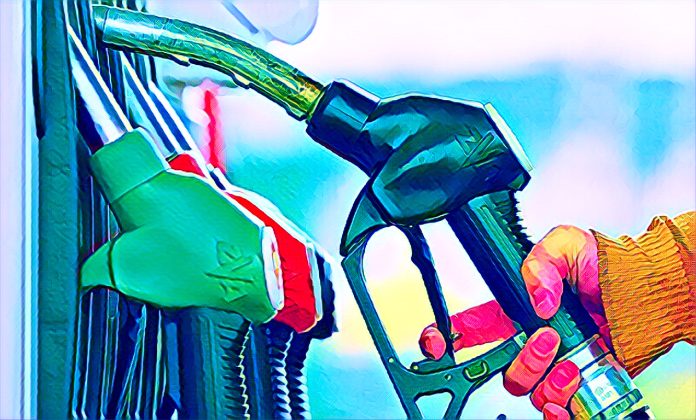KEY POINTS
- The Federal Government denies involvement in the petrol price dispute between NNPCL and Dangote Refinery.
- The petroleum market is deregulated, allowing both parties to set prices based on market forces.
- A civic group criticized NNPCL for a lack of transparency in fuel pricing, raising public trust concerns.
The Federal Government yesterday distanced itself from the ongoing dispute over petrol pump prices between the Nigerian National Petroleum Corporation Limited (NNPCL) and Dangote Refinery, stating that both parties are free to determine their own market prices.
This position was disclosed by Special Adviser on Information and Strategy Bayo Onanuga during a briefing at the Presidential Villa, Abuja.
Onanuga, accompanied by Senior Special Assistant to the President on Digital Communication and Engagement O’tega Ogra, explained that due to the deregulation of the petroleum market, both Dangote and NNPCL, as refiners and marketers, are allowed to set petrol prices based on market forces.
The presidential spokesperson noted that this scenario could ultimately benefit consumers, as competition between the two entities could drive prices down.
“The PMS price regime has been deregulated. Dangote is a private company, and NNPC should remember that it is a limited liability company,” Onanuga said. “Whatever issues they are facing are their own concerns. Even under the Petroleum Industry Act, NNPC operates independently. Despite being government-owned, it functions as a limited liability company.”
He added: “Private marketers have expressed concerns that the NNPC and Dangote prices are too high, and they may resort to importing fuel. The government is not involved in this dispute.”
Calls for direct sale and transparency in pricing
Meanwhile, the Catholic Archbishop of Ibadan, Most Rev. Gabriel Abegunrin, has urged the Federal Government to allow Dangote Refinery to sell petrol directly to marketers. The archbishop made this appeal during a press briefing held to mark his 75th birthday.
Abegunrin argued that allowing Dangote to set petrol prices and sell directly to marketers would lower costs for consumers compared to purchasing through the NNPCL.
In a related development, Development Diaries, a civic group, raised concerns about the transparency of NNPCL’s pricing policies in light of Dangote’s recent comments on fuel prices.
According to a report by Guardian, the group stated that discrepancies in NNPCL’s pricing methods lack transparency, causing confusion among citizens about how fuel costs are calculated.
“The Petroleum Industry Act (PIA), specifically Chapter Three, mandates transparency in NNPCL operations. Yet, the current situation suggests a lack of clarity, which undermines public trust at a time when Nigerians are struggling with inflation and high fuel prices,” the group said in a statement.
The group added that citizens, who directly bear the cost of price fluctuations, deserve clear information on how prices are determined and should hold NNPCL accountable for failing to meet transparency standards.



